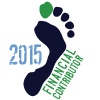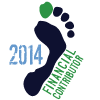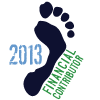Just to clarify a couple of
Just to clarify a couple of things about what I meant and respond to everything at once. (I apologize for the length

)
I wasn't so much talking about TMTS injuries just because you won't have those if you are running from the time you are very young. You can't to do much too soon because, well, you don't have the balance to even walk well let alone run. Of course there are still overuse injuries. I do think that if you do something from the time you are young you are able to do said thing much much better. I don't think its fair to use the kenyans as an example of why barefoot running is better because they do run so much from the time they are very young. I'm not saying we can't learn to run, just that if you take someone who started running at age 4 and did it to get everywhere they went, it is not a fair comparison to people like us. There are too many variables. The comparison would need to be with people who have run shod their entire lives in the same amount of mileage that the native populations that are running barefoot are doing.
And I never said you have to be born native to run without shoes. I said that I think if you start running as a gradual progression from walking and continue to do so you I think that leads to less injuries. Your body adapts better when you are young. As humboult said you should walk before you run. I just meant to say that they are better at running period because of their histories of running not that they are better at running bf, although of course they are considering they have done that far more than the rest of us too. Its just like if you take two equally talented people and teach one to play piano starting at 4 years old and one at 20 all other things being equal the four year old would be better. I don't think physical tasks are any different in this sense. I think your muscles probably develop differently based on what you demand from them, just as your mind develops differently based on what you ask from it.
In response to what Abide said, I suppose the reason I had this question is because I haven't had that experience. Every time I hurt myself I had to decrease my mileage until I healed and then I never had that issue again. I had some knee problems for awhile but after a few weeks of decreasing my mileage and increasing my crosstraining it healed and I didn't have it happen again. Thats how pretty much every injury I've had has gone and that was with two week breaks. When people transition to bf running they are often cutting way back on mileage for months and months at a time so it seems like this alone would cause a cessation of many injuries.
In response to Jschwab and in addition to what I said having to do with it above. I do wish people would stop thinking we are so different than our not so distance ancestors. Evolution takes SOOO long that it can't happen over a few generations unless there is very specific breeding programs (obviously not the case with people). Although with that said modern medicine does save alot of people. While statins, antibiotics, and csections all have their negative sides no one can argue that they don't save alot of lives. And with childbirth its not that we think we can't have a natural childbirth its just that its preferable to do so in a controlled situation where if the worst case situation occurs we can have the kid cut out. With very rare exception would I agree to be induced or have a c-section, but I'd much rather be in a hospital in case a worse case scenerio does occur. That being said, I'll be booking it out of the hospital ASAP since infections run so rampant there. Of course Doctors are relying on c-sections and inducing way way way toooooo much because of both the mother's and their own impatience and the poor babies and moms who don't know any better are suffering but I suppose thats a rant for a different day

.
I do totally get SillyC when she said
With barefoot running, there's no tolerance for mistakes. I can't get tired, run badly, and throw it all into the shoe. If I'm too tired to run well, I only have two recourses: go home altogether, or go slow. I can't slog through it the way I could when I had shoes on. It's an investment that has paid off big time for me. My long runs are now powered by genuine strength, not EVA foam.
I can completely see how this is true. Not so much for pain intolerent undisciplined runners like me

who just went home even in shoes, but for all those poor shod people I see who are cringing and fighting with every step, no way could you do that barefoot. I was talking with some friends a while back and the one was talking about how much she hates running and how you can tell everyone else does too because they look so unhappy. I've started noticing it now. Most runners look like they are throwing all the pain and agony into the shoe.
In response to C.Beth Run comment. I don't think this is absolutely a fair comparison either. Its an impossible comparison to make, but I think the fair would be to see if you dropped your mileage to transition and with an alternate version of yourself dropped your mileage back the same amount and continued running in shoes up. I suppose that also depends on how long you've been running though as well. If you've been running for years and years you probably know what you are capable of in shoes and have probably had many low mileage and high mileage cycles to compare it to. Then it would certainly be close enough. Just with all the newbie runners I don't think it is as fair, KWIM?




















